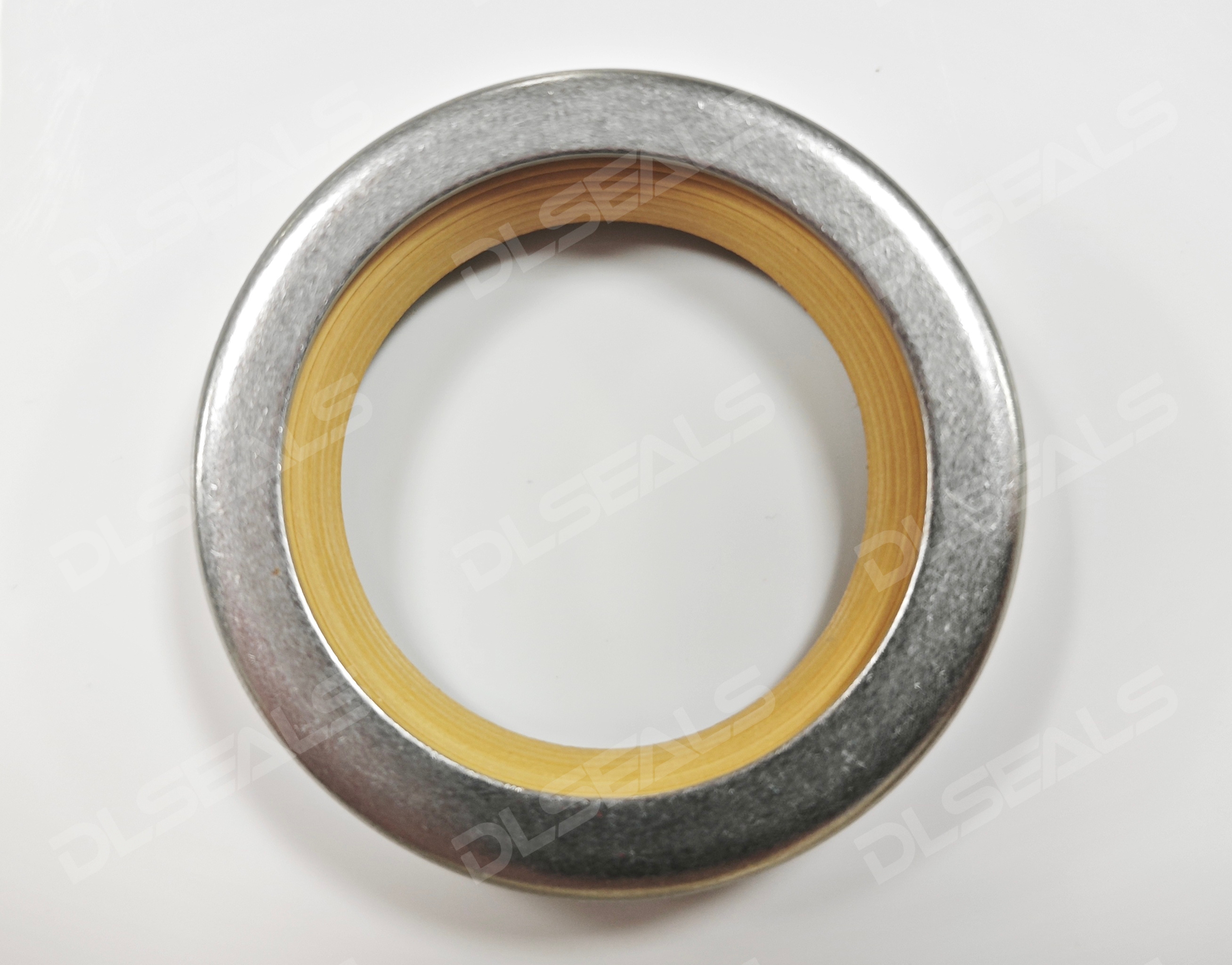In the precise world of industrial machinery, the performance of sealing components is critical to equipment longevity, efficiency, and reliability. Among various sealing solutions, the Stainless Steel Cased Oil Seal featuring a sealing lip with rotary threads stands out as a premier choice for demanding applications. It is not merely a simple seal, but an active technological innovation in sealing.
I. What is a Stainless Steel Cased Oil Seal with Rotary Lip Threads?
This is a high-performance radial shaft seal. Its core characteristics are defined by three key components:
- Stainless Steel Case (Shell): This serves as the rigid backbone of the seal, typically manufactured from 304 or 316 stainless steel. This provides exceptional structural strength and superior resistance to corrosion and chemical attack, enabling it to perform in harsh environments like those involving moisture, acids, or alkalis. It eliminates the risk of failure common with carbon steel cases, which can rust and swell.
- Primary Sealing Lip: This is usually made from high-performance elastomers like Fluorocarbon Rubber (FKM/Viton®), Nitrile Rubber (NBR), or Polyurethane (PU). It is responsible for maintaining tight contact with the rotating shaft, forming the primary static and dynamic barrier against lubricant leakage.
- Rotary Threads (Helical Ribs/Grooves): This is the heart of the innovative design. Precise, unidirectional helical grooves are machined into the air side (atmospheric side) surface of the primary sealing lip.
II. The Core Innovation: How the Rotary Threads Work – The “Pumping Effect”
A traditional seal lip primarily functions as a “barrier,” acting like a gate trying to block fluid. The design with rotary threads, however, transforms this passive approach into an active one, enabling “dynamic pumping.”
The working principle is ingenious:
As the shaft rotates, the helical threads on the seal lip act like a miniature screw pump or auger. This rotation creates a pumping action. The direction of this pumping force is specific and deliberate—it consistently directs any minute amounts of fluid (oil or grease) that might have migrated past the primary lip contact point back along the grooves toward the inside of the bearing housing**.
This process significantly enhances sealing reliability:
- Near-Zero Leakage: Even if minute amounts of medium penetrate the primary lip’s contact surface, they are immediately pumped back into the housing, achieving near-zero leakage.
- Reduced Friction & Wear: The grooves facilitate the formation of a thin lubricating film between the sealing lip and the shaft while pumping fluid back. This reduces dry running friction, significantly minimizing lip wear and heat buildup, thereby extending the service life of both the seal and the shaft.
- Excellent Exclusion Capability: The same pumping effect also actively prevents the ingress of external contaminants (like dust or moisture). When the shaft is stationary, the lip provides static sealing. When rotating, the threads create an airflow barrier that helps deflect contaminants away, offering dual protection.
III. Why Choose a Stainless Steel Case?
The use of a stainless steel case adds significant value to this already superior seal:
- Exceptional Corrosion Resistance: It completely eliminates failures caused by corrosion-induced swelling of the case, which can increase lip interference, accelerate wear, or cause the case to seize in the housing, making replacement difficult.
- Broader Application Range: Ideal for equipment exposed to various corrosive chemicals, seawater, or high-humidity environments, such as food processing, chemical processing, marine applications, pulp and paper, and offshore equipment.
- High Strength and Stability: Maintains dimensional stability under high temperatures or pressure fluctuations, ensuring the sealing lip remains in the optimal working position.
IV. Typical Applications
This advanced seal, integrating both a stainless steel case and rotary threads, is perfectly suited for applications where sealing reliability is paramount:
- High-Speed Equipment: Such as electric motors, pumps, fans, and turbo machinery, where its low-friction characteristics are particularly beneficial.
- Harsh Environments: Food and beverage industry (requiring FDA-compliant materials), chemical processing equipment, offshore wind turbines, marine thrusters, and mining machinery.
- High Maintenance-Cost Equipment: Installed in hard-to-reach locations or on equipment requiring extended service life and minimal maintenance.
Conclusion
The Stainless Steel Cased Oil Seal with a threaded rotary lip represents a significant leap in sealing technology, moving from simple “blocking” to active “fluid management.” Its ingenious pumping effect proactively returns potential leakage to the system. Coupled with the resilience of the stainless steel case, it effortlessly handles both chemical and physical challenges. For operations striving to maximize equipment uptime and reduce the total cost of ownership, investing in this high-performance seal is a wise and crucial decision.
Post time: Sep-17-2025

